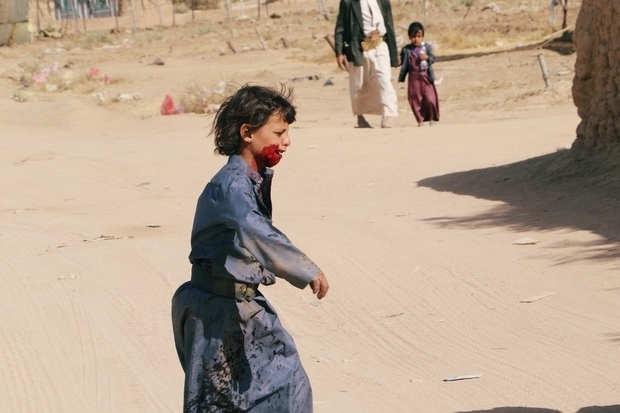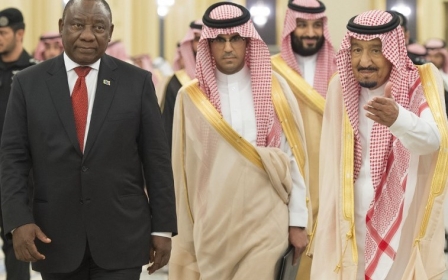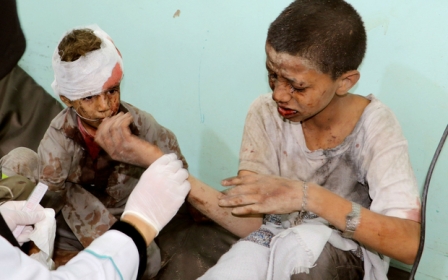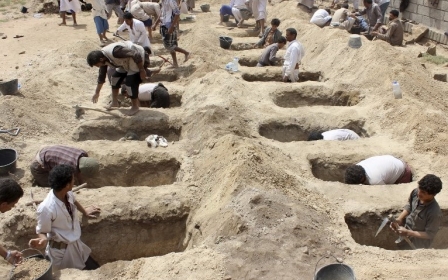Saudi-led coalition has failed to credibly investigate Yemen strikes: HRW
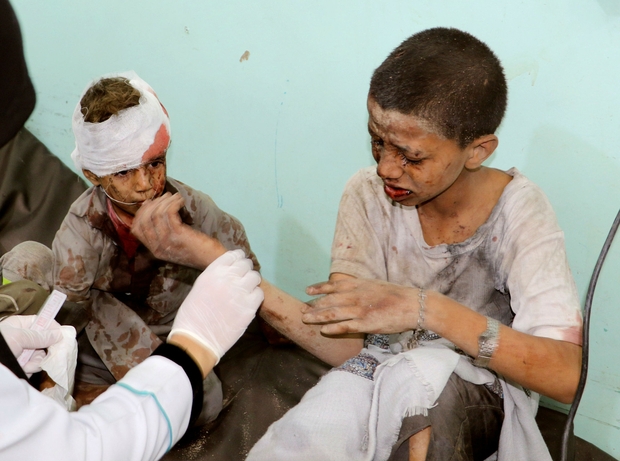
Despite mounting evidence of violations of international law in the ongoing conflict in Yemen, investigations by coalition forces have been “woefully inadequate” and contributed to shielding participating countries from being held accountable, according to a Human Rights Watch report released on Friday.
The report, titled “Hiding Behind the Coalition: Failure to Credibly Investigate and Provide Redress for Unlawful Attacks in Yemen”, details the Saudi-led coalition investigative body’s “failure” to adequately investigate abuses.
Since March 2015, coalition officials have repeatedly made false statements about coalition compliance with the laws of the war
- Human Rights Watch
The Saudi-led alliance has intervened since 2015 to back the country’s internationally recognised government after Houthi rebels forced President Abed Rabbuh Mansour Hadi out of the capital, Sanaa.
The coalition’s investigative body - the subject of the report - has a mandate to investigate, collect evidence and issue recommendations on “claims and accidents” during coalition operations in Yemen.
But according to HRW, the Joint Incidents Assessment Team (JIAT) has dismissed allegations of coalition violations, or “severely” downplayed their scope. The report also criticises JIAT’s lack of transparency in their methods of investigation.
“The limited information available to the public shows a general failing by JIAT - for unclear reasons - to provide credible, impartial, and transparent investigations into alleged coalition laws-of-war violations,” the report said.
The UN has documented 6,592 civilian deaths and the wounding of 10,470 in Yemen, with air strikes by the Saudi-led coalition causing the majority of the verified civilian casualties.
The Saudi-led campaign exacerbated the humanitarian impact of the war through intense aerial bombardments, causing mass civilian casualties. Saudi control of ports of entry and exit has hindered the delivery of food and basic necessities, creating what has been deemed the world's largest humanitarian catastrophe.
Under the 1949 Geneva Conventions, states are obligated to use their influence to prevent violations of the laws of war.
Saudi Crown Prince Mohammed bin Salman has served as the commander of the coalition since March 2015, and he oversaw the first air strike.
According to the report, JIAT has failed to provide information on the various forces involved in specific air strikes, effectively shielding coalition states involved in violations.
Human Rights Watch examined the way in which investigations were carried out by JIAT, asserting that the body “has failed to meet international standards regarding transparency, impartiality, and independence”.
“JIAT appears only to have investigated coalition air strikes, but not other alleged violations of international law by coalition members, such as UAE abuses against people in detention,” the report added.
In six of the attacks discussed in the report, Human Rights Watch identified US-origin munitions used in the attack.
The report also calls for the US to publicly clarify its role in the conflict in Yemen.
A coalition air strike hit a school bus earlier this month in Yemen's northern Saada province, killing scores of people including at least 40 children. An investigation by the Washington Post found that US munition was used in the deadly attack.
Meanwhile, 27 civilians, the majority of them children, were killed by an alleged coalition air strike on Thursday evening as they were trying to flee the embattled city of Hodeidah.
New MEE newsletter: Jerusalem Dispatch
Sign up to get the latest insights and analysis on Israel-Palestine, alongside Turkey Unpacked and other MEE newsletters
Middle East Eye delivers independent and unrivalled coverage and analysis of the Middle East, North Africa and beyond. To learn more about republishing this content and the associated fees, please fill out this form. More about MEE can be found here.


